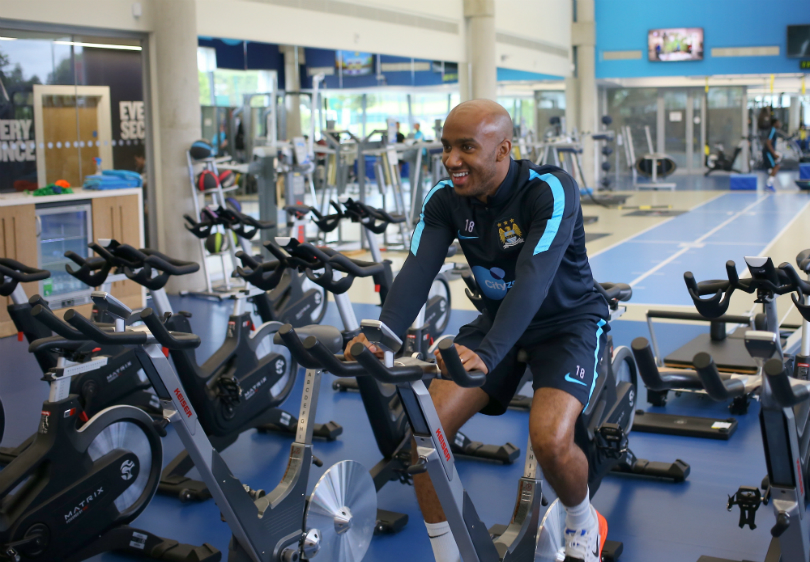How to stay fit during the off season
Train smart, eat less and stay hydrated - EXOS performance manager Brock Christopher gives you his expert advice on staying in shape over the summer...

Give your body the chance to heal
Summer is the perfect time for the body to recover from any niggling injuries. It’s important to give muscle joints and the soft tissue surrounding muscles the chance to heal. The endocrine system – the set of glands that produce hormones to regulate sleep, mood and sexual function amongst other things - needs rest, as does the nervous system. Older players, in particular, will take longer to recuperate. A reduced training load, physiotherapy and even alternative medicine can help accelerate recovery.
Use it or lose it
The end of the season isn’t an excuse to do nothing. If you don’t stay active, you will quickly lose all that hard earned fitness. Just one week of complete rest is enough for aerobic fitness to drop by five per cent, meaning your stamina levels will quickly plummet. Anaerobic fitness – your ability to do high intensity exercise such as repeated sprints - will also rapidly decline. Power and speed will gradually suffer and muscle strength will decrease by 1 per cent each day you are inactive.
Don’t do too much too soon
It’s common to see players try and pick up where they left off the previous season, but this just isn’t possible. Light activities which engage both mind and body are key in the early off season period. Think of it like investing money in the bank that you will cash in later on. With this approach you will be adequately prepared to return to your club and participate in small-sided games, excel in fitness testing and avoid pre-season fatigue.
Train three times a week
Get FourFourTwo Newsletter
The best features, fun and footballing quizzes, straight to your inbox every week.
If you don’t have access to a personal trainer then keep things simple. A 30-minute, three-day per week conditioning programme is ideal. A mixture of long, slow runs, change of direction drills and shuttles, as well as sprint training over 20-30 metre distances with limited recovery periods should be included. This will help maintain conditioning, joint mobility and body strength. A dynamic warm-up before each session is important. Static stretching and a bodyweight exercise such as press-ups or sit-ups will provide a vital cool down.
Stay hydrated
Hydration is the key starting point for recovery during the summer. Thirst is a late sign of dehydration; therefore it is essential that you constantly drink water. Even though the season is over, try to consume no more than two alcoholic drinks per week. Limiting sugar intake and eating good sources of protein from natural foods will help your muscles to repair. Eight hours of sleep each day is also vital to ensure your body gets enough rest.
Cut the calories
Diet is extremely important during this period. The body’s ability to burn calories will slow during the off season and is affected even more drastically if you do nothing. Calorie intake should match the demands of your activity. Each person puts on weight at different rates, but if you don’t eat less you will gain weight. Body composition – the amount of muscle, bone, fat and water in your system – should be monitored closely.
Hard work pays off
Training smartly during the summer will result in fewer non-contact injuries at the start of pre-season. Muscle soreness after training will also be reduced and you will recover better between practice sessions. Higher scores in fitness tests, lower body fat and an increased ability to stay hydrated are other benefits of staying in shape and you will more than likely cover greater distances. Importantly, you will be fitter than at the start of your last pre-season!
Recommended stories:
Get your season off to a flier
Condition your body for pre-season
